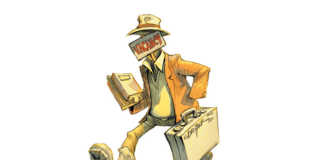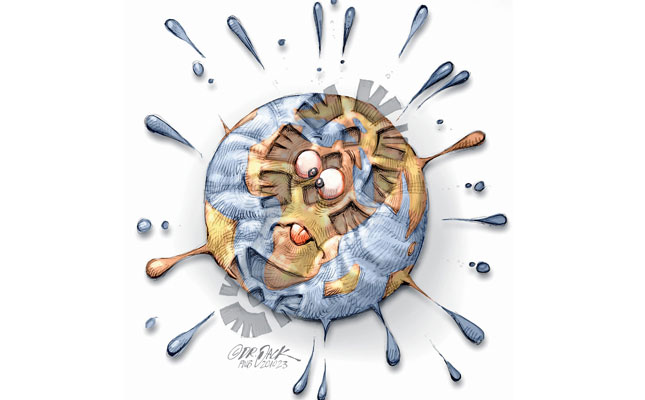
South Africa is the 32nd largest economy in the world. Yet out of 59 nations examined for competitiveness by Switzerland’s International Institute for Management Development, SA was ranked 50th in 2012, having risen from 52nd last year. Before then we were ranked in the 30s and 40s. The reason given for the decline is that foreign investors are deterred from investing in SA because of policy uncertainty.
Premier League
The first of our scenarios for SA is the Premier League, where we manage to achieve much greater policy certainty. We return to the mid-30s where we rightfully belong as both overseas and local companies invest the large hoards of cash that they have been accumulating on the side-lines in our economy.
Second Division
In the second scenario, uncertainty continues. Consequently, we slide down into the Second Division with the bulk of the Third World. Companies will still make money in SA but for government it is a disaster. They won’t get the tax revenue that they enjoy in the Premier League; and they won’t have the same access to foreign capital just when Eskom needs another R500 billion for its next generation of power stations. We will probably be kicked out of G20 and replaced by Nigeria, which could overtake us by 2020 to become the largest economy in Africa.
Three Flags
We have three flags for deciding whether we are going back up into the middle of the Premier League or sinking into the Second Division. The first flag is around inclusive leadership. We are in a hiatus as the top leadership in the ANC is engaged in internal politics leading up to the contest in December. The second flag is about pockets of excellence of which this country has many examples, one of which is the 5 000 reasonable to excellent schools. If they are used to raise the performance of the nation as a whole, that is a great flag.
If they are dumbed down in a bid to eliminate anything that appears elite, that would be one of the worst flags of all. The third flag is around the creation of a balanced economy: an outward economy that earns enough foreign exchange to pay for our imports and an inward economy that creates jobs and makes a significant dent on our hideous unemployment rate. As far as the outward economy is concerned, you have to play to your strengths to win in the ultra-competitive game that now exists.
There are three spaces we can dominate on the global stage:
Resources. We are still world Number 1 in platinum, manganese and chrome and have plenty of high grade iron ore and coal. Where we can, we must go downstream and add value before we export resources. I believe food could become a major export if we play it properly. This year will be the real tester. The drought in the US has had a major effect on crops and food prices are going through the roof. Farming could become one of the best industries in the world.
Tourism.
We are a relatively cheap destination and now is the time to offer ourselves as a real value-for-money tourist attraction.
Gateway into Africa.
We are the largest and most advanced economy in Africa and Africa is opening for business. We are the natural place for Western multi-nationals to kick off their campaigns to access the continent’s market as Walmart is doing right now. On the inward economy, we only have one flag but it is critical: our attitude towards entrepreneurs and small business.
In South Africa, the environment for entrepreneurs is extremely regulated and hostile – ranging from unreasonable labour legislation to shoddy treatment by the state, parastatals and big business as clients. Unfair price squeezing and late payment for services are real issues. Hence, our odds on ‘Premier League’ versus ‘Second Division’ have changed from 70:30 18 months ago to 50:40. We do not have inclusive leadership; we do not celebrate our pockets of excellence; and we have not changed our mindset towards entrepreneurs.
Failed State
Lying in the wings is a wild card scenario to which we now assign a 10% probability. It is where South Africa joins the likes of Syria and Somalia as a Failed State. We have four red flags and one tendency: if any of the flags rise or the tendency turns into reality, the odds on Failed State increase. Our first red flag is nationalisation. It would be seen as thoroughly retrogressive by the majority of our trading partners and the question most frequently asked is where the money to pay for the mines and the banks would come from.
The ANC now appear to be pursuing the idea of a state-owned enterprise competing against the private sector, as well as increasing royalties and other rents. This flag is therefore down at present. The second flag is a clumsy implementation
of National Health Insurance which leads to a decline in private medical care and another exodus of young talent from this country.
The minister is in consultation with the major private sector players, which again suggests this flag is down for the time being.
The third flag is a media tribunal with punitive powers. Gagging the media is as bad as undermining the independence of the judiciary. Any weakening of either institution will remove the remaining brakes on corruption. The government has made some concessions by turning the tribunal into a public commission and putting a whistle-blower clause in the act.
Nevertheless, there is other security legislation in the pipeline and the nature of a secret has not been defined.
The fourth flag is the most lethal: land grabs, which will immediately divide the nation and possibly cause a civil war. We will literally be off everybody’s investment agenda. The country needs an Agridesa of all the major players to negotiate a land transformation programme with a reasonable chance of success. In other words, land grabs should be pre-empted.
Conclusion
If you add the 40% for Second Division to the 10% for Failed State, we are now 50:50 between the good and bad scenarios. We need a Codesa 3 or Economic Codesa in which the government, the top 100 CEOs in the private sector, the unions and other significant players create an inclusive economy driven by a new generation of entrepreneurs and industrialists. The Agridesa would be a separate but linked initiative. The outcome would be a highly publicised list of targets and actions to which the participants would be held accountable. Implementation has always been our weak suit and this is one way of making things happen.
The views expressed in our weekly opinion piece do not necessarily reflect those of Farmer’s Weekly.













